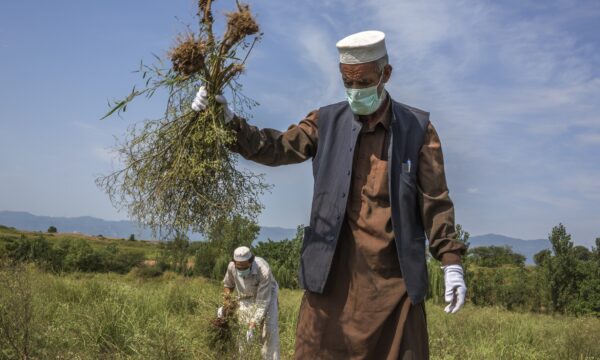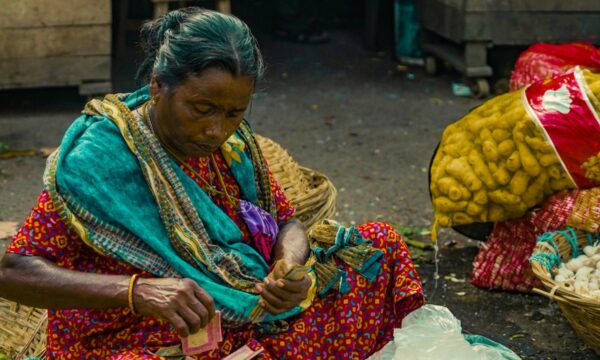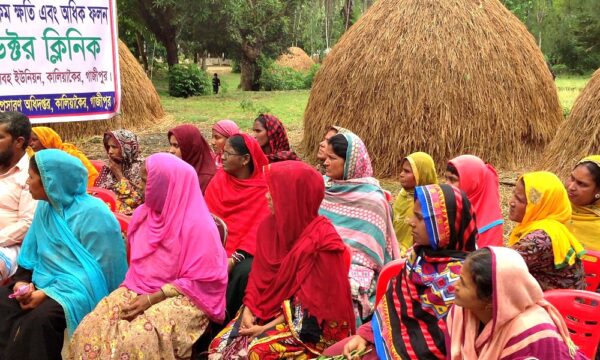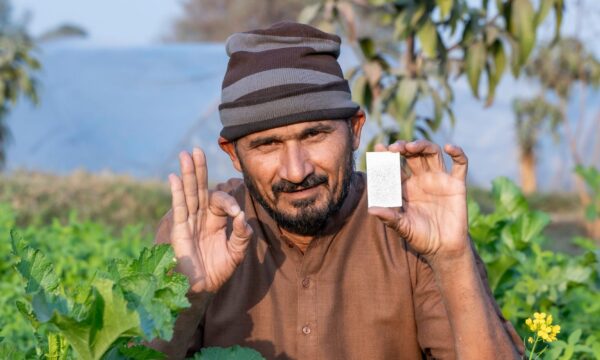By Umair Safdar, CABI Pakistan

Group photo of participants after training. Photo: CABI
Plant health is increasingly under threat from a range of abiotic factors – such as nutritional deficiencies, extremes in temperature, adverse soil pH, pollutants – as well as biotic factors such as fungi, bacteria, viruses, nematodes, insects and other animals. Diagnosing and managing these issues requires a new approach in training agricultural extension field staff, to ensure that they are equipped with the knowledge and tools required.
CABI’s Plantwise programme offers a two-part training package, which trains agricultural extension field staff to become plant doctors – able to diagnose and provide control or management options about as many as possible of the pests and diseases affecting plants.
Last month, 44 participants were trained by Pakistani master trainers at the premises of Rawalpindi District Agricultural Extension Office, under supervision of Mr Muhammad Naeem Aslam (Plantwise Country Coordinator, Pakistan). The training covered topics such as the identification of major pests and diseases, controls, the safe use of chemicals and management of a plant clinic. This training workshop combined theory, discussions and field visits to ensure multi-faceted learning.
The first training module (“How to become a plant doctor”) uses group exercises to compare what people see on sick plants before offering an “expert” opinion on a sample. This is a standard teaching method we use: people first do a simple exercise, then compare results between themselves before the teacher offers “expert” advice. The second training module comprises of the best possible solution of the problems after diagnosing the problem.
The participants appreciated the insights of the national master trainers and CABI staff and observed that this training course will help them provide plant health services to farmers all year. After completing the course, the new cohort of plant doctors are now ready to run plant clinics in Rawalpindi District and to help local farmers lose less and feed more.
Related News & Blogs
Most read blogs of 2025
As 2025 comes to a close, we’ve tallied the numbers to reveal the top 10 most read blogs on the PlantwisePlus Blog this year, plus a few firm favourites! Our most read blogs feature voices from those benefiting from our work, as well as crop pest guide…
17 December 2025




